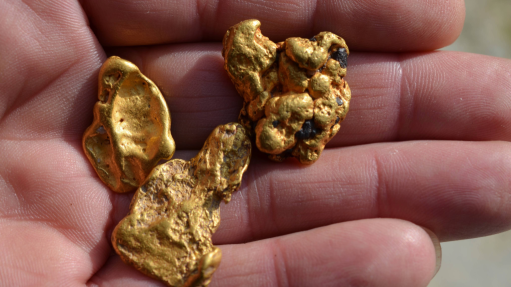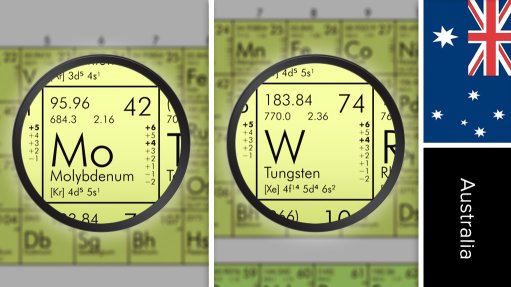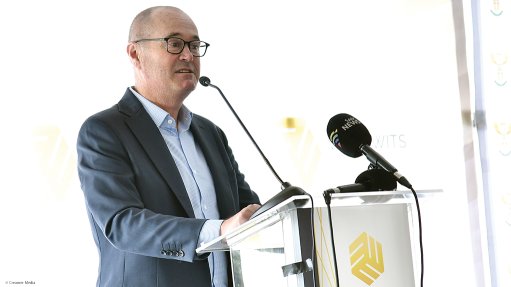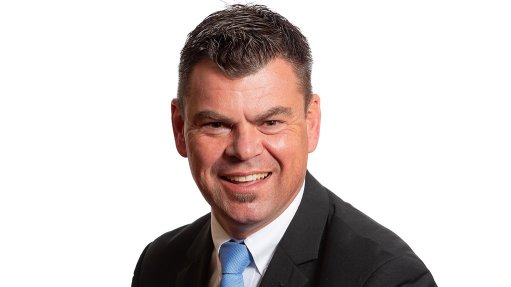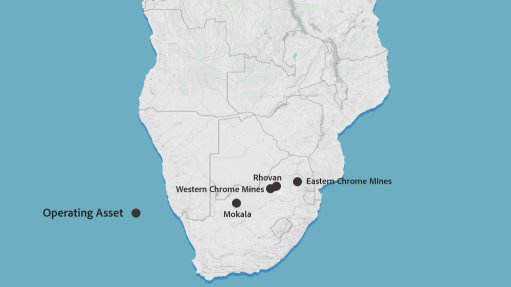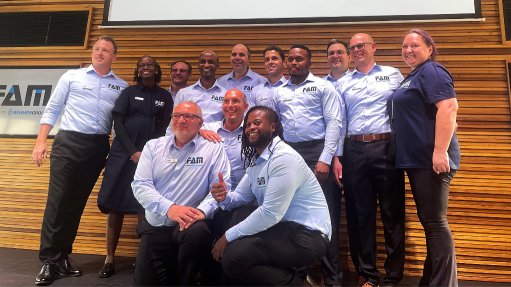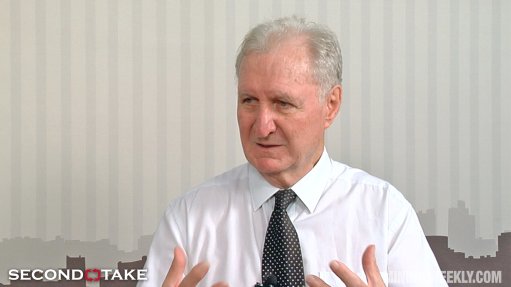Implementing local designation of valves a challenge for industry

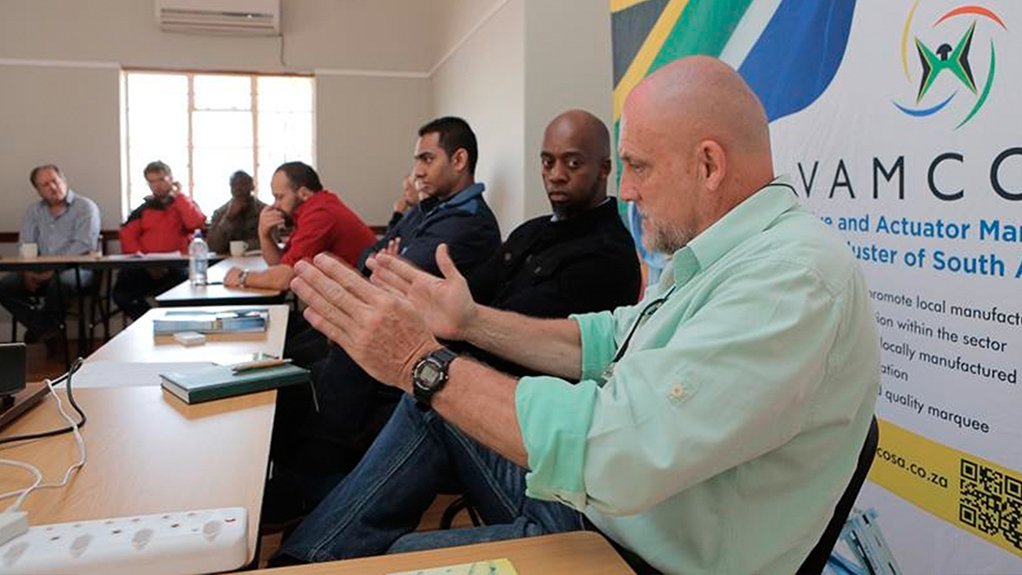
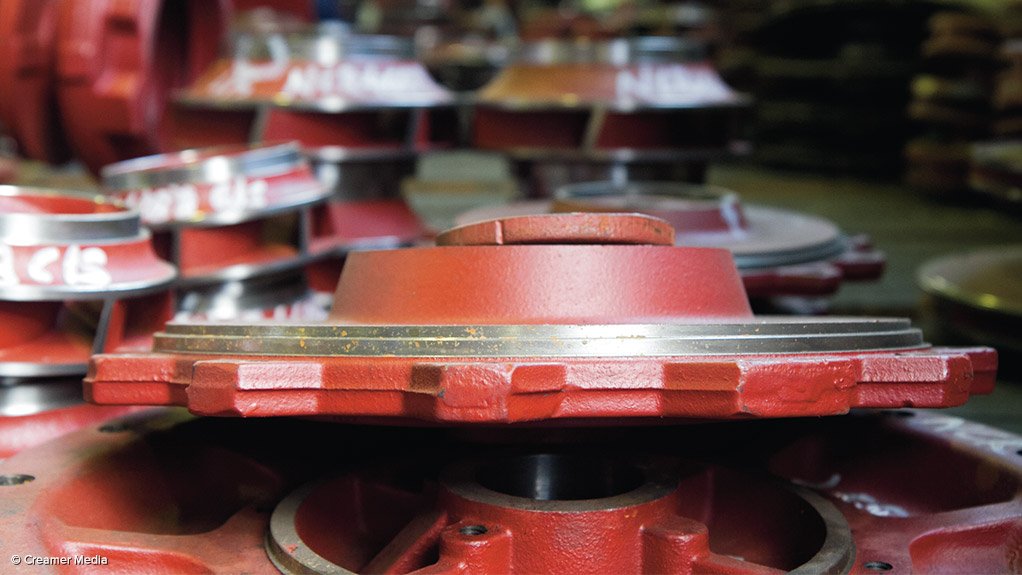
MARK WILSON Vamcosa has hosted a series of open sessions to inform industry stakeholders about designation
JOB FAUCET The local designation of South Africa’s valves sector stimulates job creation, skills development and the industry's value chain
Photo by Duane Daws
Since the Department of Trade and Industry (DTI) designated valves as a priority product that needed to be locally manufactured, in March last year, it has become quite a challenge for the valves industry to implement the DTI’s vision, says Valve and Actuator Manufacturers Cluster of South Africa (Vamcosa) champion Mark Wilson.
Wilson’s cochampion at Vamcosa, Ross Hunter, tells Engineering News that informing consulting engineers and contractors has been half the challenge, and ensuring that tenders issued by State-owned companies do not defect from the policy comprising the other half.
Informing engineering, procurement and construction (EPC) firms about the localisation requirements is important because it impacts on their legal requirements when tendering.
Many EPC firms interpret that the requirements for local designation are that State-owned entities must source locally manufactured valves when sourcing an individual valve.
However, they also believe that, when valves are bought as part of a system, which is then sold to government, they do not need to be locally manufactured valves when, in fact, they do, says Hunter.
The local designation of South Africa’s valves sector makes sense, as it stimulates job creation, skills development and the long value chain of the industry, Wilson says, adding that the downstream effect of promoting the valves sector is extensive.
Upstream beneficiaries of the local designation of valves include foundries, steel manufacturers, wear coating, hardening, stelliting, chrome carbiding and rubber retailers, as well as nuts and bolts suppliers.
Meanwhile, Vamcosa highlights international valves manufacturer AVK Valves’ new factory in Alrode, Gauteng, as a significant success story of valve designation.
Hunter and Wilson say there are murmurs about other international companies considering the establishment of manufacturing plants in South Africa, though they note that committed decisions are yet to be made.
They also agree that the local designation of valves is, potentially, a turning point for the valves industry, which was damaged by the flooding of the valves market with cheaper, typically Chinese, goods on the South African market, following the lifting of economic sanctions in 1994.
However, the process of accelerating the industry has been slow thus far. This is partially because of a lack of compliance to designation and because many State-owned enterprises do not have the funds to put out tenders that would help stimulate the local industry.
Further, other recently designated sectors include transformers and steel pipes, as well as classroom furniture.
Wilson believes that government has learned a lot from the process of designation, as the process is applicable to different sectors in South Africa: “It’s not a case of ‘one size fits all’ and the verification process needs to be tailor made for each sector.”
He further argues that the sectors that have successfully reaped the benefits of local designation rely on an inside organisation to drive the initiative.
Government can legislate designated products, but it does not have enough personnel to drive the policy and ensure compliance, he points out, adding that Vamcosa, which initially argued for the valves sector to be designated, is now becoming a watchdog to assist in ensuring compliance.
It does this by monitoring tenders and alerting the DTI about tenders that are not specify locally manufactured valves. However, Wilson reveals that some tenders do fall through the cracks, with importers trying to keep their market share.
He adds that Vamcosa held the second of a series of open sessions last month with EPC firms to inform them about the correct tendering process.
About Vamcosa
Established in 2011, Vamcosa started with eight members and now consists of 15. All members must be valves manufacturers and must comply with Vamcosa’s code of ethics.
The code involves avoiding plagiarism and collusion and insists on members acting in a morally correct manner in their dealings with their customers and suppliers. Hunter notes that Vamcosa abides by the rules of the Competition Commission.
Wilson adds that the cluster aims to build the valves industry as a whole, with Hunter adding that one of the main goals in this regard is skills development.
With this in mind, Vamcosa this year set up an artisan training facility at Fumana High School in Katlehong, Gauteng, where experienced Vamcosa artisans train pupils from Grades 10 to 12 on the fundamentals of becoming an artisan.
Enterprise development through the promotion and creation of emerging small, black-owned businesses is another idea that the cluster would like to pursue, says Wilson.
Vamcosa Members
Wilson is also the marketing director of Gunric Valves and Hunter the MD of ball valves manufacturer RGR Technologies, both of which are Vamcosa members.
Along with Gunric and RGR, the other 14 members include AC Valves, AZ Armaturen SA, Ainsworth Engineering, Aveng Manufacturing, Cobra Watertech, Dual Products International SA, Flowrox, Ithuba Valves & Industrial Supply, Klep Valves, Mitech Control Valves, Paltech, Premier Valves, Ari Africa and eDart Slurry Valves.
Communication about industry activities and within the industry are the main benefits of being a Vamcosa member, as the cluster provides a direct line between industry and the DTI. The organisation also has stakeholders such as the Technology Localisation Implementation Unit, the National Foundry Technology Network, the South African Institute of Foundrymen and the South African Bureau of Standards to assist with making designation a success.
Hunter describes clustering as a unique form of organisation in business, where no individual member in a cluster has more power than another.
The titles of ‘champion’ and ‘cochampion’ held by Wilson and Hunter respectively allude to coordinating and facilitating operations in the cluster.
Within Vamcosa, there are a number of working groups, with each group comprising a few members that tackle different projects to promote the local valves industry in different sectors, such as the mining and water industries.
In addition, the cluster has a transformation working group and is developing a new working group to promote exports.
Article Enquiry
Email Article
Save Article
Feedback
To advertise email advertising@creamermedia.co.za or click here
Announcements
What's On
Subscribe to improve your user experience...
Option 1 (equivalent of R125 a month):
Receive a weekly copy of Creamer Media's Engineering News & Mining Weekly magazine
(print copy for those in South Africa and e-magazine for those outside of South Africa)
Receive daily email newsletters
Access to full search results
Access archive of magazine back copies
Access to Projects in Progress
Access to ONE Research Report of your choice in PDF format
Option 2 (equivalent of R375 a month):
All benefits from Option 1
PLUS
Access to Creamer Media's Research Channel Africa for ALL Research Reports, in PDF format, on various industrial and mining sectors
including Electricity; Water; Energy Transition; Hydrogen; Roads, Rail and Ports; Coal; Gold; Platinum; Battery Metals; etc.
Already a subscriber?
Forgotten your password?
Receive weekly copy of Creamer Media's Engineering News & Mining Weekly magazine (print copy for those in South Africa and e-magazine for those outside of South Africa)
➕
Recieve daily email newsletters
➕
Access to full search results
➕
Access archive of magazine back copies
➕
Access to Projects in Progress
➕
Access to ONE Research Report of your choice in PDF format
RESEARCH CHANNEL AFRICA
R4500 (equivalent of R375 a month)
SUBSCRIBEAll benefits from Option 1
➕
Access to Creamer Media's Research Channel Africa for ALL Research Reports on various industrial and mining sectors, in PDF format, including on:
Electricity
➕
Water
➕
Energy Transition
➕
Hydrogen
➕
Roads, Rail and Ports
➕
Coal
➕
Gold
➕
Platinum
➕
Battery Metals
➕
etc.
Receive all benefits from Option 1 or Option 2 delivered to numerous people at your company
➕
Multiple User names and Passwords for simultaneous log-ins
➕
Intranet integration access to all in your organisation








